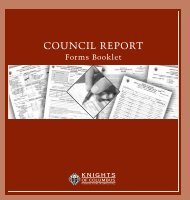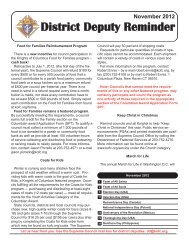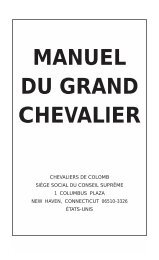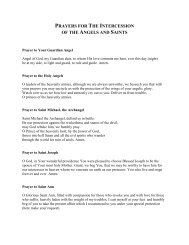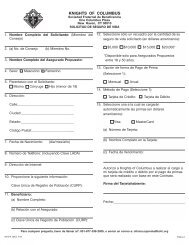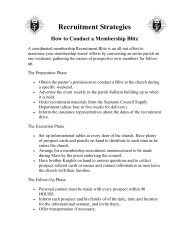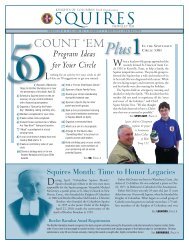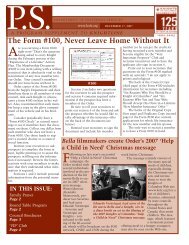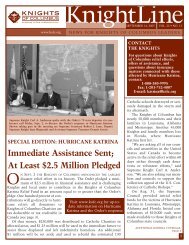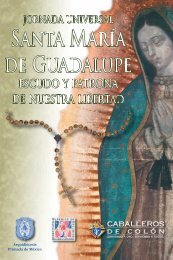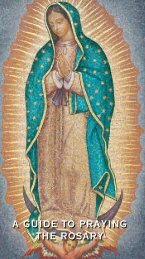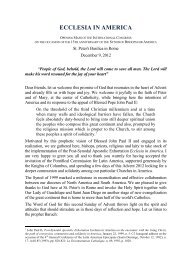Download PDF - Knights of Columbus, Supreme Council
Download PDF - Knights of Columbus, Supreme Council
Download PDF - Knights of Columbus, Supreme Council
Create successful ePaper yourself
Turn your PDF publications into a flip-book with our unique Google optimized e-Paper software.
We are free to choose what we are to do and, by so choosing,<br />
to make ourselves to be the kind <strong>of</strong> persons we are. But we are not<br />
free to make what we choose to do to be good or evil, right or<br />
wrong. We know this from our own sad experience, for at times we<br />
have freely chosen to do things that we knew, at the very moment<br />
we chose to do them, were morally wrong. We can, in short, choose<br />
badly or well; and if we are to make ourselves to be fully the beings<br />
God wills us to be, we need to choose well, i.e., in accordance with<br />
the truth. To this issue we will now turn.<br />
3. NORMS FOR MAKING TRUE MORAL JUDGMENTS AND GOOD<br />
MORAL CHOICES<br />
Human choices and actions, whether morally good or morally<br />
bad, are intelligible and purposeful. Sinful choices, although<br />
unreasonable and opposed to the order <strong>of</strong> reason, are not irrational,<br />
meaningless, absurd. All human choice and action is directed to<br />
some end or purpose, and the ends or purposes to which human<br />
choices and actions are ordered are considered as “goods” to be<br />
pursued. The “good” has the meaning <strong>of</strong> what is perfective <strong>of</strong> a<br />
being, constitutive <strong>of</strong> its flourishing or well-being. Thus the<br />
proposition good is to be done and pursued and its opposite, evil, is<br />
to be avoided is a practical proposition to which every human person,<br />
as intelligent, will assent once its meaning is understood. 11 This is a<br />
principle or “starting point” for intelligent, purposeful human choice<br />
and action. It is indeed the first principle <strong>of</strong> natural law.<br />
Moreover, this is not a vacuous or empty principle. It is given<br />
content and specified by identifying the real goods perfective <strong>of</strong><br />
human persons, aspects <strong>of</strong> their flourishing or well-being toward<br />
which they are dynamically ordered by their nature as human<br />
persons. Saint Thomas Aquinas identified a triple-tiered set <strong>of</strong> such<br />
human goods which, when grasped by our reason as ordered to<br />
action (“practical reason”), serve as first principles or starting points<br />
- 10 -



